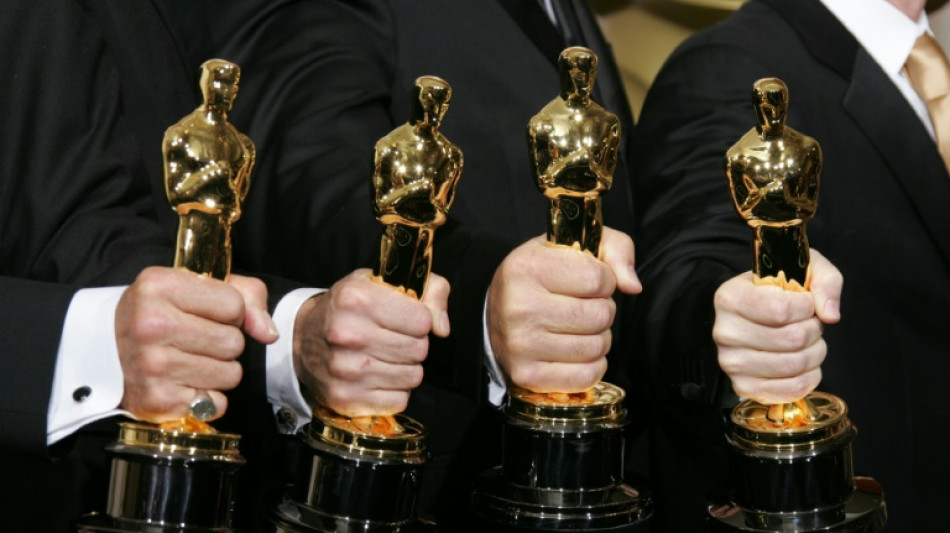
-
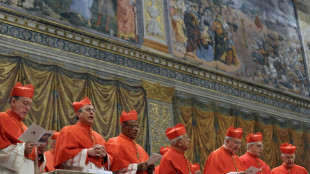 What we know ahead of the conclave
What we know ahead of the conclave
-
Jannik Sinner launches foundation supporting children

-
 Villagers on India's border with Pakistan fear war
Villagers on India's border with Pakistan fear war
-
Putin announces surprise Ukraine truce for May 8-10

-
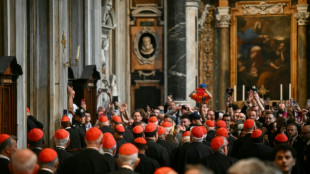 Conclave to elect new pope starts May 7
Conclave to elect new pope starts May 7
-
Stock markets mostly rise amid trade talk hopes

-
 India says signs deal with France for 26 Rafale fighter jets
India says signs deal with France for 26 Rafale fighter jets
-
Trump's deep-sea mining order violates global norms: France
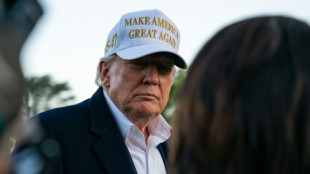
-
 India Kashmir crackdown sparks anger as Pakistan tensions escalate
India Kashmir crackdown sparks anger as Pakistan tensions escalate
-
Russia says claims over annexed Ukraine regions key to peace

-
 Austrian climber dies on Nepal mountain
Austrian climber dies on Nepal mountain
-
Fires rage 2 days after Iran port blast killed 46

-
 Palestinian official tells ICJ Israel using aid blockage as 'weapon of war'
Palestinian official tells ICJ Israel using aid blockage as 'weapon of war'
-
France arrests 25 in police raids after prison attacks

-
 Kim Kardashian's next star turn is in a Paris courtroom
Kim Kardashian's next star turn is in a Paris courtroom
-
Syria group says military chief arrested in UAE

-
 Anger in Indian Kashmir at demolitions and detentions
Anger in Indian Kashmir at demolitions and detentions
-
Italy bank merger wave heats up as Mediobanca eyes Banca Generali
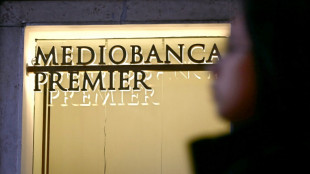
-
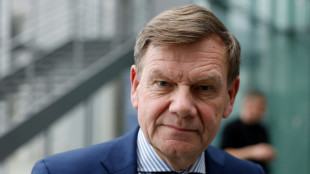 Putin critic Johann Wadephul, Germany's incoming foreign minister
Putin critic Johann Wadephul, Germany's incoming foreign minister
-
Cardinals expected to pick conclave date to elect new pope
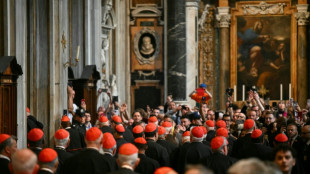
-
 French mosque murder suspect arrested in Italy
French mosque murder suspect arrested in Italy
-
China says on 'right side of history' in trade standoff with US

-
 Stock markets mostly rise as investors eye trade talks
Stock markets mostly rise as investors eye trade talks
-
Fires rage 2 days after Iran port blast killed 40

-
 Yemen's Huthi rebel media says 68 killed in US strikes on migrant centre
Yemen's Huthi rebel media says 68 killed in US strikes on migrant centre
-
Man rescued from Mount Fuji twice in one week: reports

-
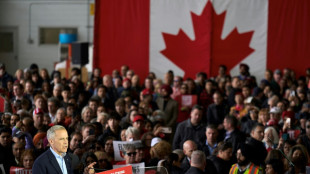 Canada votes for new government to take on Trump
Canada votes for new government to take on Trump
-
Top UN court to open hearings on Israel's aid obligation to Palestinians

-
 Philippines denies 'irresponsible' Chinese report on disputed reef
Philippines denies 'irresponsible' Chinese report on disputed reef
-
T'Wolves win to push Lakers to brink, Celtics, Knicks and Pacers win
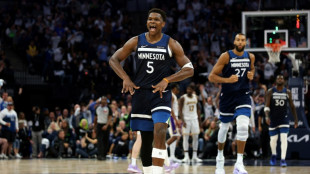
-
 Myanmar marks month of misery since historic quake
Myanmar marks month of misery since historic quake
-
South Korea's SK Telecom begins SIM card replacement after data breach

-
 Women's flag football explodes in US as 2028 Olympics beckon
Women's flag football explodes in US as 2028 Olympics beckon
-
'Hunger breaks everything': desperate Gazans scramble for food

-
 Suspect charged with murder in Canada car attack that killed 11
Suspect charged with murder in Canada car attack that killed 11
-
Lost to history: Myanmar heritage falls victim to quake

-
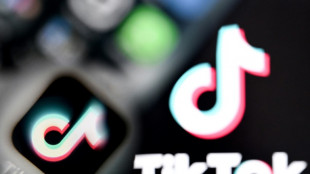 Romania far-right rides TikTok wave in election re-run
Romania far-right rides TikTok wave in election re-run
-
Trial begins in Paris over 2016 gunpoint robbery of Kim Kardashian
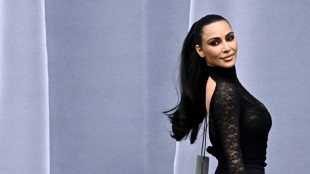
-
 Trump thinks Zelensky ready to give up Crimea to Russia
Trump thinks Zelensky ready to give up Crimea to Russia
-
North Korea confirms troop deployment to Russia's Kursk
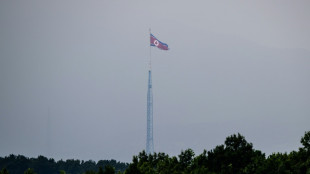
-
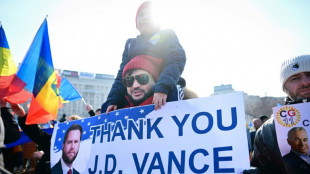 Romania presidential election re-run under Trump shadow
Romania presidential election re-run under Trump shadow
-
Asian markets mixed as investors eye trade talks

-
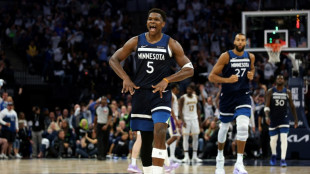 T'Wolves push Lakers to brink of elimination, Celtics and Knicks win
T'Wolves push Lakers to brink of elimination, Celtics and Knicks win
-
Suspect charged with murder in Canada car attack that left 11 dead

-
 Smart driving new front in China car wars despite fatal crash
Smart driving new front in China car wars despite fatal crash
-
Cardinals set to pick conclave date to elect new pope
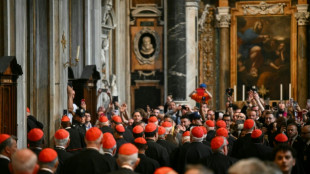
-
 Miami's unbeaten MLS run ends after Dallas comeback
Miami's unbeaten MLS run ends after Dallas comeback
-
After 100 days in office, Trump voters still back US president
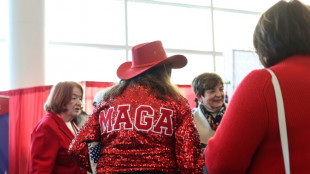
-
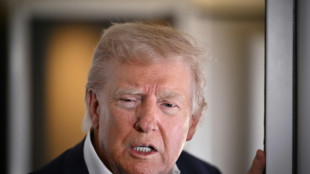 US anti-disinformation guardrails fall in Trump's first 100 days
US anti-disinformation guardrails fall in Trump's first 100 days
-
Dick Barnett, two-time NBA champ with Knicks, dies at 88
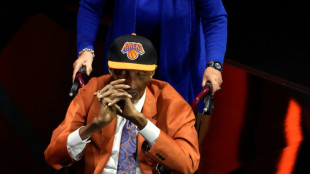

Thank you! Oscars speeches over the years
At the Oscars over the years, we have seen it all with the winners' speeches, ranging from dull, endless, cringe, heartwarming or, when we're lucky, hilarious.
A few stick in the mind, from the astounded gasps of an 11-year-old Anna Paquin to Patricia Arquette's rousing feminist oration that brought Meryl Streep to her feet for a standing ovation.
But, taken together, an AFP analysis of nearly 2,100 speeches dating back to March 1953, of which 80 percent are by men, reveals winners most often thank the Academy, their family, the film crew or a movie influence.
- Pithy and epic -
Speeches averaged nearly three sentences in the 1950s but since winners have become more talkative on stage: in 2024 they reached 15 sentences. On Tuesday, this year's nominees were urged to stick to a 45-second speech.
Daniel Kaluuya, Best Supporting Actor for "Judas and the Black Messiah" in 2021, delivered the most epic speech ever, running for almost 70 sentences.
In three minutes 30 seconds, the British actor who has Ugandan parents thanked some 30 people from God to his team, taking in his family and "everyone (he) loves, from London Town to Kampala".
At the other extreme, nearly 200 winners took the fast route back to their seats, delivering one-sentence speeches.
In 1954 when "Titanic" trio Charles Brackett, Walter Reisch and Richard Breen won Best Original Screenplay, Brackett barely got out a "Thank you" before the trio was ushered aside on stage.
Women, meanwhile, are the longest orators, averaging over nine sentences compared to seven for men.
By category, Best Actress winners deliver the longest speeches, with 18 sentences, two and a half more than their male counterparts.
- All about gratitude -
Naturally most thank-you speeches are all about saying thanks -- the word "thank" appears in nearly 95 percent of all speeches in AFP's analysis.
Of the five percent remaining, some were being more imaginative in their choice of words -- Vincente Minnelli for example expressed his "gratitude" in 1959 when he received the Best Director Oscar for "Gigi".
Arthur Harari won in 2024 with Justine Triet for Best Original Screenplay ("Anatomy of a Fall") -- his partner had given all the thank-yous.
Looked at by category, the Best Actresses with their longer speeches are also the ones who say thank you the most, using "thank" 6.2 times on average.
Positively loquacious with her more than 60 sentences, Halle Berry dedicated half of those to thanks in 2002 when she became the first Black actress in Oscar history to win, for "Monster's Ball".
After opening with two "Oh my Gods" followed by "this moment is so much bigger than (her)," she dedicated her award to "every nameless, faceless woman of color that now has a chance because this door tonight has been opened".
In contrast Frances McDormand, not one to mince her words, almost skipped the "thanks" entirely when she won her first of three top actress awards for "Fargo" in 1997 by the Coen brothers.
She did slip one in right at the end -- "Thank you for acknowledging our work" -- and had dished out a congratulation to producers for "allowing directors to make autonomous casting decisions based on qualifications and not just market value".
- From God to Spielberg -
The giver of the golden statuette, the Academy of Motion Picture Arts and Sciences, is the most frequently cited entity in speeches.
In the 1950s it features in one out of 12 speeches; in the last decade, one out of two.
Another frequent reference is to "God," appearing nearly 190 times in over 140 speeches.
More than six out of 10 occurrences refer to the religious figure, among which slightly less than half are as part of phrases with "God bless" to the audience, America, the Academy...
Among all instances of "God", one in five corresponds to the phrase "Oh (my) God", which does not directly refer to the religious figure.
Among individuals, Hollywood titan Steven Spielberg -- a nominee 23 times and winner three -- is the most mentioned name, coming up around 40 times.
D.Sawyer--AMWN

